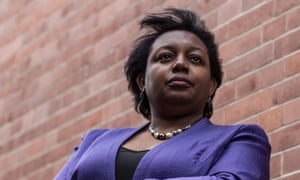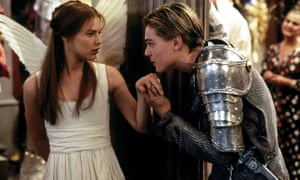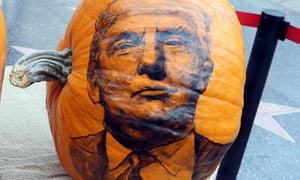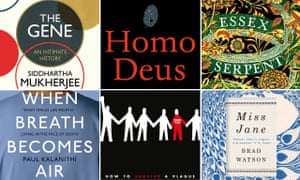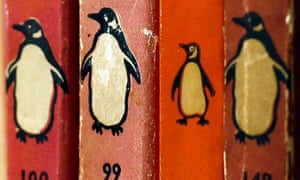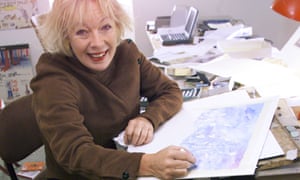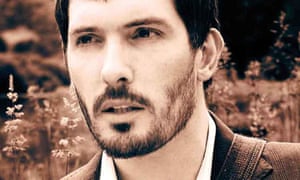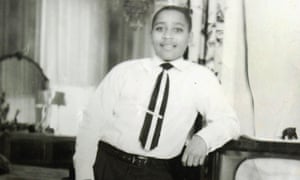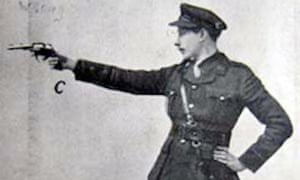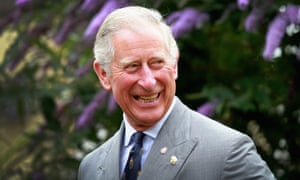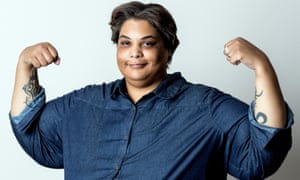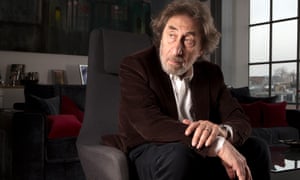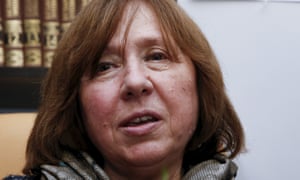Days Without End wins Sebastian Barry second Costa book of the year award
Irish writer becomes first novelist to win award twice, with story of a gay relationship set during founding of the US
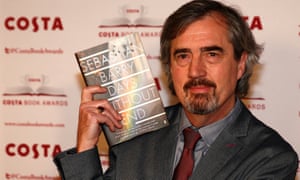
A “searing, magnificent” depiction of a gay relationship during the bloody founding of modern America, described by judges as “one of the most wonderful depictions of love in the whole of fiction”, has won the Costa book of the year award.
Sebastian Barry won the £30,000 prize for his novel Days Without End, making him the first novelist to win the prize for a second time. He previously won the Costa book of the year, regarded as one of the UK’s most prestigious literary awards, for his novel The Secret Scripture in 2008.
After being named the winner at a central London ceremony, Barry thanked the judges, saying: “You have made me crazy happy from the top of my head to my toes in a way that is a little bit improper at 61.”
Days Without End, praised in the Guardian as “a work of staggering openness; its startlingly beautiful sentences … so capacious that they are hard to leave behind, its narrative so propulsive that you must move on”, follows the life of Thomas McNulty, a migrant in the 1850s who flees the Irish famine.
Leaving a country behind that is “starved in her stocking feet. And she had no stockings”, McNulty reaches America and embarks on a soldier’s life, first fighting Native Americans and then against armies in the civil war. Barry, who has said he was inspired to write a book containing a gay love story after his son came out, also focuses on McNulty’s romance with fellow soldier John Cole, and their adopted Native American daughter, Winona.
Speaking after receiving the award at a ceremony in London, Barry said he had just spoken to his son Toby on Skype. “That was an award in itself,” he said. “I couldn’t hear anything, technology can’t overcome the great literary buzz.”
Having previously said his children refused to read his books, Barry said that Toby had now read Days Without End, which is dedicated to him. “He said to me, ‘You’re not gay, dad, but you’re an ally. And I like your book.’”
Eight years on since his last Costa win, Barry said he had made no plans for spending the prize money, as he had been warned that no novelist had won twice. “Writers have odd economies. We spend the first 10 or 15 years writing and making nothing, and an event like this simply spring cleans your economy. It actually makes that very complicated person, your accountant, reasonably happy for a little while.”
When asked what he planned next, he said, “I want to go home and sit on the couch with my wife and daughter and wonder: ‘What the hell just happened?’”
In a decision that the chair of the judges, author Kate Williams, said took 90 minutes, Days Without End was picked unanimously by the panel as the winner. “It is brutal, it is terrifying, it moves you to tears, it horrifies – and at the same time, it has these fantastic moments of light and beauty, and of friendship,” Williams said. “It takes you from the highs to the lows of human experience. It is an absolutely magnificent, incredible book.”
Celebrating books across five categories – novel, first novel, children’s fiction, poetry and biography – the Costa awards shortlist four writers in each category, with the winner in each then eligible to win the overall book of the year award.
Speaking to the Guardian when he was first shortlisted for the prize in November, Barry said: “It knocks your socks off every time, even in your 60s. Winning the Costa changed my life. I was able to send my kids to university with that prize. To be at the cadet stage again, that is so exciting.”
Barry is the first novelist to win the overall Costa award twice, placing him beside Ted Hughes and Seamus Heaney, who both won the overall prize twice for their poetry. The Irish novelist and playwright saw off fellow shortlistees Keggie Carew for her biography Dadland, poet Alice Oswald for her collection Falling Awake, children’s author Brian Conaghan for his book The Bombs That Brought Us Together and the esteemed non-fiction writer Francis Spufford, who won the first novel category for his debut, Golden Hill. Barry had trailed Carew as the favourite to win, with odds of 5-2.
In the light of the world’s renewed and intense focus on American politics, Williams said Barry’s book was remarkably prescient despite being written long before Donald Trump’s election as US president.
“It seems very striking, of course, as we are looking so much to America and thinking so much about America, and about American history and life at the moment, that we have this book about the founding of America and how America was won,” she said.
“Because we know, politically in America, the pioneer spirit, the wild west, the founding fathers – these visions are very important to America. It is very striking, even though it was written some time ago, it seems incredibly prescient now.”
2016 saw an unprecedented number of women shortlisted across the Costa award categories, with 14 competing against six men and an entirely female poetry shortlist for the first time since it began as the Whitbread prize in 1971.
The book of the year award has been won most often by novels – 11 times, since the category was introduced in 1985. The last time a novel won was in 2012, when Hilary Mantel won for Bring Up the Bodies.
Each category prizewinner was decided by a three-person judging panel. The overall winner was agreed by a panel consisting of chair Williams and her fellow judges: authors Nicci Gerrard, TV presenter Graham Norton, journalist Sian Williams, actor Robert Bathurst, literary editor Charlotte Heathcote, author Matthew Dennison, Observer literary critic Kate Kellaway and children’s author Cressida Cowell.
The awards are open only to authors living in the UK and Ireland. This year, 596 entries were whittled down to the five, four-book shortlists.
